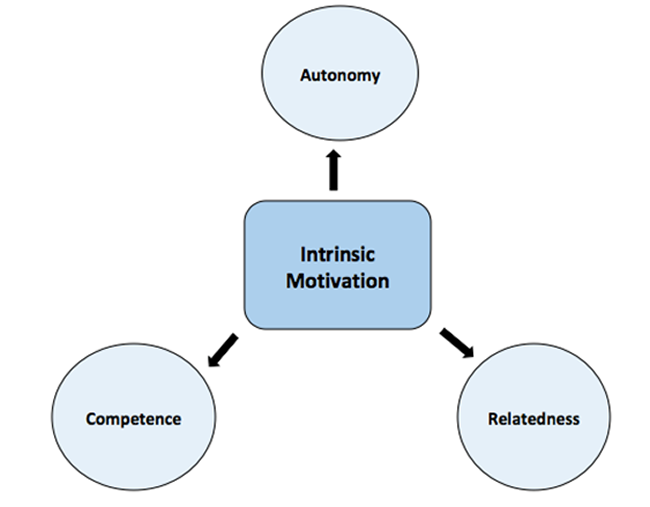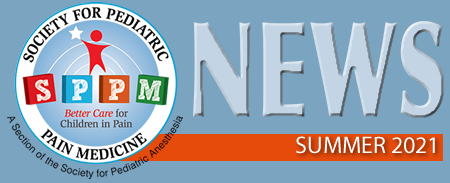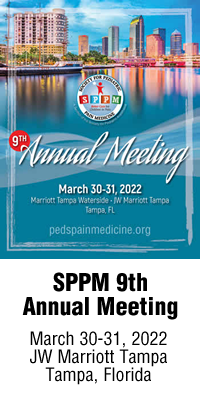Special Article in Medical Education
Learner Motivation and Self-Determination Theory in Medical Education
By Nellie Forman, MD, MS and Samuel Yanofsky, MD, MSEd
Children’s Hospital Los Angeles
Keck School of Medicine
University of Southern California
Los Angeles, California
Motivation can impart major influence over the ability of trainees to learn within their given discipline. Leaner motivation can influence academic performance and success, choice of specialty, in addition to learning and study behaviors.1 There are various educational models and theories that focus on learner motivation in order to help medical educators teach more effectively.
Self-Determination Theory
Self-determination theory states that intrinsic motivation and autonomous self-regulation are the most desired type of motivation. The primary tenet of self-determination theory is that it allows learners to meet three psychological needs: autonomy, competence, and relatedness. People are more successful when they have a sense of choice or free will. Additionally, people like to feel a sense of competence and believe that they are good at what they do. Lastly, self-determination theory postulates that people must feel connected to what they do and with others in their field.2,3 Overall, intrinsic motivation leads to deep learning, well-being, and higher performance. Educators are able to engage autonomous motivation by setting an optimum level of challenge, providing choices to their learners, and creating structures to foster connections.2

Growth Mindset
Learner mindset is another aspect that greatly impacts the ability to learn and absorb knowledge. Growth mindset describes a state where the learner embraces challenges and seeks to tackle tough problems. Learners in a fixed mindset may resist or give up when faced with challenges.4 In order to embrace a growth mindset, the learner must evoke self-compassion, vulnerability, grit, and resilience.
- Self-compassion – This is critical to overcome self-criticism. Many learners have periods of time where they demonstrate self-compassion and are in a growth mindset. However, self-criticism is a common habit that restricts learners and causes them to stay in a fixed mindset.5
- Grit – Grit is defined as passion plus perseverance. Passion begins with an interest or passion in a subject, but must be followed with deliberate practice and hard work to achieve a specific goal.6
- Vulnerability – Vulnerability incorporates courage, connection, joy, and empathy. Additionally, vulnerability allows learners to express self-compassion and the feeling that they are competent.7
- Resilience – Resilience is defined as the ability to use challenges for growth opportunities in order to make future hardships more manageable. Resilience allows for adaptation in the face of adversity, trauma, tragedy, and sources of threat.8
ARCS Educational Model
The concepts of self-determination theory and growth mindset incorporate critical components that are common to other educational models. The ARCS Model describes four ways an educator can enhance learning and encourage autonomous motivation (Table 1).9
| Attention | It is vital to obtain the learners interest and attention in a subject. |
| Relevance | The learning process should show the usefulness of the content. |
| Confidence | Providing estimation of probability of success directly correlates to learner confidence. |
| Satisfaction | Learners should be satisfied with what they learned through the process, which directly correlates to motivation |
Overall, autonomous motivation, resilience, and grit are some of the critical components in a variety of educational models and learning theories. It is paramount that medical educators begin to incorporate tools to enhance learner motivation and encourage growth mindset in order to effectively train the next generation of healthcare providers.
References:
- Kusurkar RA, Croiset G, ten Cate OThJ. Twelve tips to stimulate intrinsic motivation in students through autonomy-supportive classroom teaching derived from self-determination theory. Medical Teacher. 33:978–982, 2011.
- Lyness, J.M., Lurie, S.J., Ward, D.S. et al. Engaging students and faculty: implications of self-determination theory for teachers and leaders in academic medicine. BMC Med Educ 13:151, 2013.
- Kusurkar R, ten Cate O, AM Last Page: Education Is Not Filling a Bucket, but Lighting a Fire: Self-Determination Theory and Motivation in Medical Students. Academic Medicine. 88 (6):904, 2013.
- Dweck, CS. Mindset: The new psychology of success. New York: Random House, 2006.
- Neff, K. Self-Compassion: The Proven Power of Being Kind to Yourself. HarperCollins e-books; Reprint edition, 2011.
- Duckworth, A. Grit: The Power of Passion and Perseverance. Scribner, 2016.
- Brown, B. Daring Greatly: How the Courage to Be Vulnerable Transforms the Way We Live, Love, Parent, and Lead. Avery, 2012.
- Eell, G. TED Talk: Cultivating Resilience, TEDxCortland, July 8, 2015.
- Keller, JM. Motivational Design for Learning and Performance: The ARCS Model Approach. Springer Publishing, 2010.




